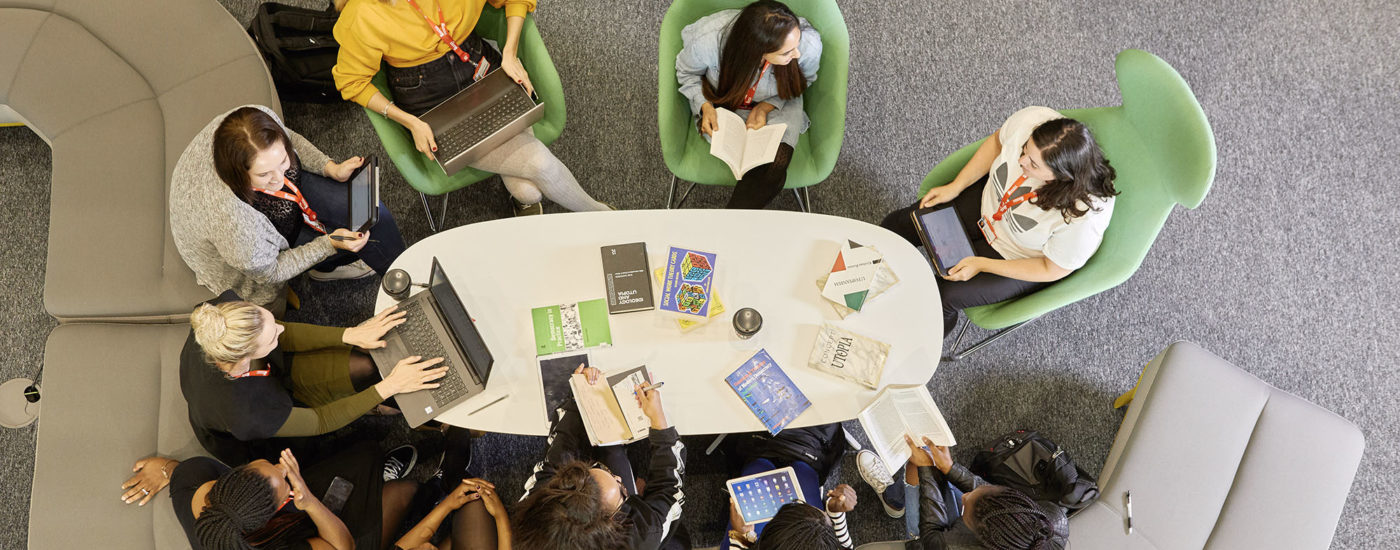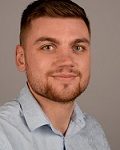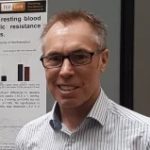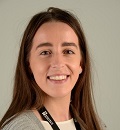Lecturer in Esports
Faculty of Arts, Science and Technology

Sport and Exercise MRes
- Home
- Courses by subject
- Sport and Exercise MRes
Key Facts
-
Level
Master'sPG MRes
-
Duration
One Year
-
Starting
September
-
Full Time: £8,500
-
Full Time: £17,495
-
Waterside
Updated 28/03/2025
Updated 28/03/2025
Get in touch
For questions regarding study and admissions please contact us:
UK STUDENTS ENQUIRIES
study@northampton.ac.uk
0300 303 2772
INTERNATIONAL STUDENTS ENQUIRIES
Overview
MRes Sport and Exercise will allow you to critically explore a specific research area within the overarching subject area of Sport and Exercise. You will be supported in pursuing a specialist area of research by subject experts and will draw upon a blend of theory, practical and qualitative and quantitative data analysis experiences to prepare you for related employment or further study.
The MRes will support student progression, develop researchers and professional practitioners in specialist areas and would suit those wishing to gain more experience of research prior to embarking on PhD study and/or looking to gain experience of working on projects prioritised by industry partners.
You will develop industry-relevant/vocational skills (critical analysis, reflective practice, working in multidisciplinary teams) and will have the opportunity to undertake an extended laboratory or field-based research project, developing your employability skills and industry capital. Industry partners may also offer internships to selected MRes graduates where research projects support organisations to improve competitiveness, skills, and innovation ability.
Highlights
- The two taught modules will prepare you to undertake a research project
- You will be able to apply and develop your skills in a practical, real world setting with local professional industries
- Taught and supervised by motivated and research active subject experts
- Brand new campus and facilities at our £330 million Waterside Campus
- An opportunity to work with established subject experts
Entry Requirements
To be eligible for the MRes in Sport and Exercise programme at the University of Northampton, you must meet the following entry requirements:
- Hold a 2:1 or better degree in a related subject area (the degree must reflect the subject focus of the proposed research project)
- International applicants will also require a 2:1 (or equivalent) or better degree in a related subject area (the degree must reflect the subject focus of the proposed research project)
- Show commitment and enthusiasm for the study of the dedicated pathways within Sport and Exercise to complete all requirements of the course.
Our MRes programme in Sport and Exercise, seeks to recruit to the programme students from a diverse educational and social backgrounds who could benefit from and motivation to complete the programme. The programme welcomes applications from those with a wide variety of educational qualifications and will consider on merit applicants with no formal qualifications.
-
Within their Personal Statement, applicants are advised to demonstrate and reflect on the following topics:
- Commitment and enthusiasm for the study of the dedicated pathways within Sport and Exercise.
- Relevance of their degree and previous experiences relating to Sport and Exercise.
- Reasons and motivation for studying this programme at the University of Northampton.
- Reasons and motivation for specifically studying at Masters/ Level 7 study.
-
Please include a short proposal for the MRes in your application (maximum 1-2 pages, 1000 words plus references). Within your Research proposal will be expected to provide evidence of your ability to plan and organise independent research. Your proposal must be a relevant topic area associated with projects listed within the specialism section on this page, but you can provide your own research topic that is of Level 7 standard.
Please include the following information within your proposal:
- Provide an overview of your research question, explaining why it is of academic and/or practical importance
- Outline the main objectives of your research, providing details of two or three key aspects
- Write a short literature review, indicating the importance of related research or literature and how your own research question might make a useful contribution to the area
- State the main research techniques (physiological, questionnaires/interviews, mixed modelling etc.) you might use
- Indicate your suggested data collection procedures, indicating sources and any possible difficulties
- Explain any analytical techniques you intend to use
State your proposed timetable of activities - Finally, list the references in your proposal or provide a short bibliography.
In our experience, there are a number of common reasons why proposals from well qualified potential students are rejected. Some common problems are outlined below:
- Your research topic is inadequately specified. You must write to a very tight format stating what you plan to research, why and how. The format is clearly outlined above.
- A study that merely aims to discover new empirical information or simply solve a current issue will probably not be accepted. Your proposal must engage new ideas/thought and demonstrate strong critical insight into one or more academic disciplines to succeed in your research.
Consider utilising our MRes Sport and Exercise Research Proposal form to craft your proposal. Upon submission, you’ll receive an emailed copy of the form, enabling you to conveniently attach it to your application.
Please refer to our research proposal guidance for information on submitting a suitable research proposal.
All suitable candidates will be asked to submit a research proposal as part of the application procedure and if short listed will be required to attend an interview as part of the admissions process.
All offers of a place on the programme are subject to:
- Commitment and enthusiasm for the study of the dedicated pathways within Sport and Exercise.
- A sound and appropriate submitted research proposal.
- A successful interview by the University.
-
If English is not your first language, or you have not been educated mainly in English, you must provide evidence of your English language capability:
- IELTS 6.5 overall, with a minimum of 6.0 in writing and 5.5 in each other band (or equivalent)
Upcoming Discovery Days
Discovery Days give you the best experience and insight to courses, people and facilities that interest you. Make your choice easier and come meet us.
Course Content
-
You will apply to undertake the MRes in a specific area or in line with the tutor specialist focus, see Specialisms below. The programme is a one-year full time programme which has two taught modules undertaken in the first trimester (Research Methodologies, Research Skills) which are designed to support you to develop your knowledge and understanding in the research area as well as allow you to become familiar with the project’s protocols. Once successfully completed you will undertake the 120-credit dissertation module in trimester two and three.
Please note the modules shown here relate to the academic year 24/25. The modules relating to the academic year 25/26 will be available from June 2025.
-
-
Research Methodologies (20 Credits)
Module code: SPOM047Status: CompulsoryThis module will advance the students understanding of the foundations of quantitative and qualitative methodologies and analyses commonly used in research projects. It will also provide the student with an understanding of the approaches and reasoning to study design, data collection and analysis
-
Research Skills (40 Credits)
Module code: SPOM048Status: CompulsoryThe purpose of the module is to enable students to develop their research skills and ethical practice through the investigation of individualised research projects. Students will apply skills developed in this module to their chosen area of research to support them as independent researchers
-
MRes Dissertation (120 Credits)
Module code: SPOM049Status: CompulsoryThe module is designed to give students experience conducting original research and developing research skills. Students will develop theoretical knowledge and competence in the equipment/tools to be used within the research project, the associated measures, the planned protocols and specific data analysis techniques needed throughout a research project. Students will develop project management skills relevant to the ongoing management of large scale research projects
-
Research Methodologies (20 Credits)
-
-
Investigate the influence of test duration and ability level on the VLAmax principle.
The prospective student will work in collaboration with Dr Michael Porter and Jamie Langley (Loughborough College) to undertake a quantitative research approach. VLAmax principle has recently gained significant traction in both research and applied settings. VLAmax is an indirect assessment of the rate of anaerobic glycolysis measured via post exercise blood lactate sampling.
The prospective student will conduct a research study to Investigate the influence of test duration and ability level on the VLAmax principle in cyclists. They will conduct this by assess the influence of test durations (6, 9, 12, 15s) and fitness levels (recreational, amateur, and sub elite) on VLAmax in cyclists. This project would advance the wider application of the VLAmax principle in applied exercise physiology testing.Applicants need to be UK-home students, have experience in quantitative research, and need to submit a proposal outlining their study design to meet the above requirements of the project (a proposal template is provided in the application process).
Investigating the use of ‘Near Infrared Spectroscopy’ (mNIRS) to monitor peripheral haemodynamic status in stroke or diabetic populations.
The prospective student will work in collaboration with Dr Michael Porter to undertake a quantitative research project. mNIRS is the use of near infrared light to assess the haemodynamic status (muscle oxygenation) of peripheral muscles. mNIRS research is becoming increasing popular in exercise physiology with the invention of small portable devices that can be placed on a wide variety of muscle belly’s.
The prospective student will complete a quantitative research study to investigate the use of ‘Near Infrared Spectroscopy’ (mNIRS) to monitor peripheral haemodynamic status in stroke or diabetic populations. This project would advance the current knowledge base of mNIRS and improve its applications to monitor non communicable diseases going forward.Applicants need to be UK-home students, have experience in quantitative research, and need to submit a proposal outlining their study design to meet the above requirements of the project (a proposal template is provided in the application process).
An investigation into the short-term training effects of eccentric exercise on stroke survivors’ muscle-tendon mechanics.
The prospective student will work under the supervision of Professor Tony Kay and Dr Brett Baxter examining the efficacy of eccentric exercise as a rehabilitation modality to improve neuromuscular function in stroke survivors.
The successful applicant will examine metrics of muscle and tendon structure and function prior to training and re-examine these metrics at mid-training and post-training using ultrasonography and dynamometry. Therefore, the applicant should ideally be from a sport and exercise science background with experience using at least one of these assessment methods, with knowledge in biomechanics and/or muscle physiology. Applicants from physiotherapy or occupational therapy backgrounds will also be considered.
Applicants should submit a project proposal no longer than one side of A4, which includes a research-informed background to this topic area. The applicant should also include a proposed study design using the information provided above. If shortlisted, the applicant will be interviewed to further assess their suitability for the project.
For further information, please contact Dr Brett Baxter.
Northamptonshire Sport
Northamptonshire Sport are proud to provide an MRes tuition fee bursary for the 2025/26 academic year. The prospective student will work in collaboration with Northamptonshire Sport, Associate Professor Declan Ryan to undertake a qualitative project. The project forms part of the evaluation for Move Northamptonshire, which is a countywide framework to tackle physical inactivity. The prospective student will undertake interviews to explore their views about Move Northamptonshire and the mechanisms required to implement the framework across the system. In addition, the prospective student will survey partners involved in the delivery of physical activity across the county to identify what support structures can be put in place to support their buy-in and use of Move Northamptonshire. Furthermore, a literature review may be conducted to help Northamptonshire Sport understand approaches to tackling physical inactivity.
Applicants need to be UK-home students, have experience in qualitative research, and need to submit a proposal outlining their study design to meet the above requirements of the project (a proposal template is provided in the application process).
The deadline for applications is 4 July 2025, with shortlisting interviews week beginning 4 August 2025 for a September 2025 start date.
For any queries, please contact Assoc. Prof. Declan Ryan.
-
Assoc. Prof. Tony Baross:
Primary research areas are the acute and chronic effects of isometric resistance training and the associated central and peripheral adaptations in borderline and hypertensive individuals in addition to investigating the feasibility of undertaking homebased isometric exercise within the community.
My publications in the primary area have established protocols to reduce blood pressure in healthy and borderline hypertensive populations, established homebased isometric exercise equipment and protocols in addition to highlighting a number of possible vascular adaptations associated with this hypotensive response to isometric training. This has a major impact on the population’s health nationally and globally. The research has been published in high-impact international journals including the Scientific Reports, Cochrane Review and Journal of Hypertension, with collaborations from renowned international authors from Canada, Australia, USA, Holland and UK.
Prof. Tony Kay:
The acute and chronic effects of muscle stretching techniques and eccentric exercise on musculoskeletal and neuromuscular characteristics associated with musculotendinous mechanical properties, architecture, morphology, exercise-induced muscle damage, muscle strain injury, and musculoskeletal and neuromuscular characteristics associated with falls and functional decline in ageing.
Dr. Mairi Mulvenna:
Motivation (Achievement goal theory, self-determination theory), stress appraisals, anxiety, well-being, performance, (sub)optimal functioning. Generally focused on how motivation enhances psychological, emotional (and in some parts physiological) functioning and performance in sport.
Assoc. Prof. Declan Ryan:
Declan joined the University of Northampton in 2019. Since then, Declan has been awarded the University’s Diamond Award for Early Career Researcher of the Year of 2020 and has gone on to manage and deliver several evaluation and research projects, including the Northamptonshire Holiday Activities and Food Programme Summer 2021 evaluation.
The area of Declan’s growing research portfolio investigates the influence of green spaces on population physical activity, wellbeing, and social prescription, collaborating closely with Northamptonshire Sport, Delapre Abbey Preservation Trust, General Practice Alliance, and Public Health Northamptonshire.
Declan is the co-founder of the Activity Quarter, a collective of interdisciplinary organisations aiming to enhance the use of local green spaces as a Public Health asset, in addition to being a member of the Northamptonshire Physical Activity Network. Furthermore, Declan will lead the newly formed Interdisciplinary Physical Activity and Health Promotion Research Group within the Centre for Physical Activity and Life Sciences. The group uses both quantitative and qualitative approaches to evaluate and research interventions and whole-systems frameworks that promote physical activity, health, and wellbeing in the general public.
Dr. Matt Wood:
In the sports ecosystem it is common for coaches to be part of a multidisciplinary support team (e.g. coaches, analysts, scientists, strength and conditioning, physiotherapy and psychology). According to Rothwell et al. (2020), the challenge of integrating subdisciplines originates in a lack underpinning theory of learning and development. In response to this challenge, Ecological Dynamics (Araujo et al., 2015) has been proposed as a suitable theoretical framework to support the collaborative work of coaching and science practitioners in a Department of Methodology (DoM) with the aim of benefiting individual and team performance. This area of research invites students to explore the application of contemporary pedagogical theory (e.g. Constraints-led Approach and Nonlinear Pedagogy) to the coaching process. For example, a key interaction in a DoM is the use of sport performance analysis to enhance coaches’ experiential knowledge when designing and delivering representative practice tasks (Otte et al., 2020). Research in this area seeks to contribute to practical and theoretical knowledge of sports coaching.
Dr. Carmen Horvat:
Primary research area includes elite sport policy and management, in particular within the context of small states and with a focus on the organisation of a successful elite sport system. This encompasses a wide range of topics, including the overall organisational and financial structures; overall participation in sport, talent identification and athlete support systems; sports facilities; coaching and coach education; competitions; scientific research; as well as cultural and wider contextual influences on sporting achievements of athletes. In addition to the above, I am currently expanding my research into the area of management and policy of safeguarding in sport with an aim to aid to the underdeveloped understanding of this topic.
Dr. Stacie Gray:
I currently have two active research strands. The first is situated in the area of sport policy / governance, with a focus upon implementation and compliance (at the macro, meso and micro level). My second research area aims to enhance the student learning experience and influence higher education sport management teaching practice. Specific focus is placed upon equality, diversity and inclusion in the curricula. My articles have been published in a variety of high quality sport management, policy and education journals.
Assoc. Prof. Emma Whewell:
Emma Whewell is an Associate Professor in Learning and Teaching, Emma’s research centres around, physical education, initial teacher education, mentoring, identity, digital pedagogies and inclusive practices. Her publications are nationally and international recognized for influencing public policy and driving curriculum change. Emma would be interested in supervising projects in the above areas or if an applicant has a specific interest in children’s voice in alternative provision education.
Dr. Lucy Zhu:
Esports is my primary research interest. My research areas include motivation (Self-determination Theory), perceived service quality, well-being, behavioural intentions of spectators and players. I am also interested in sport marketing, gender studies in Esports, player wellbeing and burnout in Esports, as well as performance related research topics. I have close collaboration with researchers from UK as well as China, USA, South Korea and Japan for esports topics. My primary publications focused on scale development on measuring psychological and managerial constructs and their relationships to delineate the psychological pathways behind spectators’ decision making at esports events. I am involved in a number of UK and international grants related to Esports from human resource studies, leadership studies, to legal protection of underaged players.
Dr. Emma Buxton:
Primary research areas are sports biomechanics and impact mechanics. This includes investigating gymnastics landing forces, landing impacts and landing mechanics. This area investigated F.I.G. equipment testing procedures, established with impactor drops and gymnast landings with the use of F.I.G standard landing mats via both experimental and theoretical approaches. The primary aim is to investigate landing impact forces with focus of understanding the implications for both performance and injury reduction. Publications from the research can be found in the Journal of Sports Engineering and Technology. Additional research areas include gymnastic skill technical analysis with the use of simulation modelling for gymnastics high bar skills published in Sport Biomechanics journals.
Dr. Brett Baxter:
Brett’s area of expertise is exercise medicine, specifically the use of eccentric resistance training to improve neuromuscular function in clinical populations. Brett’s previous work has examined the acute, training, and detraining effects of eccentric resistance training in older adults in attempt to develop a minimal-dose strategy to combat age-related neuromuscular decline. Furthermore, Brett is interested in the use of eccentric resistance training to enhance neuromuscular function in those who have had a stroke, particularly by using the cross-education effect from training the unaffected limb.
Dr. Michael Porter
Michael currently lectures at the University of Northampton on the BSc (Hons) Sports and Exercise Science, and Rehabilitation courses, specialising in health and exercise physiology.
Michael first studied at the university of Essex where he graduated with a BSc (Hons) Sports and Exercise Science. After graduating in 2016, he went onto pursue a Doctorate in Sports Science also at University of Essex. The title of Michael’s PhD, which was awarded in 2020 was “The Ergogenic Effects of Oxygen Supplementation on Cycling Performance”.Michael’s current research areas are the 1) use of ‘Near Infrared Spectroscopy’ (mNIRS) to monitor muscle oxygen levels, and 2) exploring the effects that oxygen supplementation has on muscular performance.
Michael’s other research interests lie in physiological testing, the use and application of the VLAmax principle in exercise physiology, and wider interests in health physiology.

Fees and Funding
2025/26 Tuition Fees
Fees quoted for this degree relate to study in the Academic Year 25/26 only and may be subject to inflationary increases in future years.
- UK – Full Time: £8,500
- International – Full Time: £17,495
-
Fees quoted for this degree relate to study in the Academic Year 24/25 only and may be subject to inflationary increases in future years.
- UK – Full Time: £8,250
- International – Full Time: £16,995
Staff

Lecturer in Sport & Exercise Science (Kinesiology)
Faculty of Arts, Science and Technology
Brett Baxter

Associate Professor of Sport & Exercise Physiology
Faculty of Arts, Science and Technology
Anthony Baross

Lecturer in Sport Coaching and Performance Analysis
Faculty of Arts, Science and Technology
Matt Wood

Senior Lecturer in Sport Business and Leadership
Faculty of Arts, Science and Technology
Stacie Gray

Lecturer in Sport & Exercise Science (Kinesiology)
Faculty of Arts, Science and Technology
Brett Baxter








